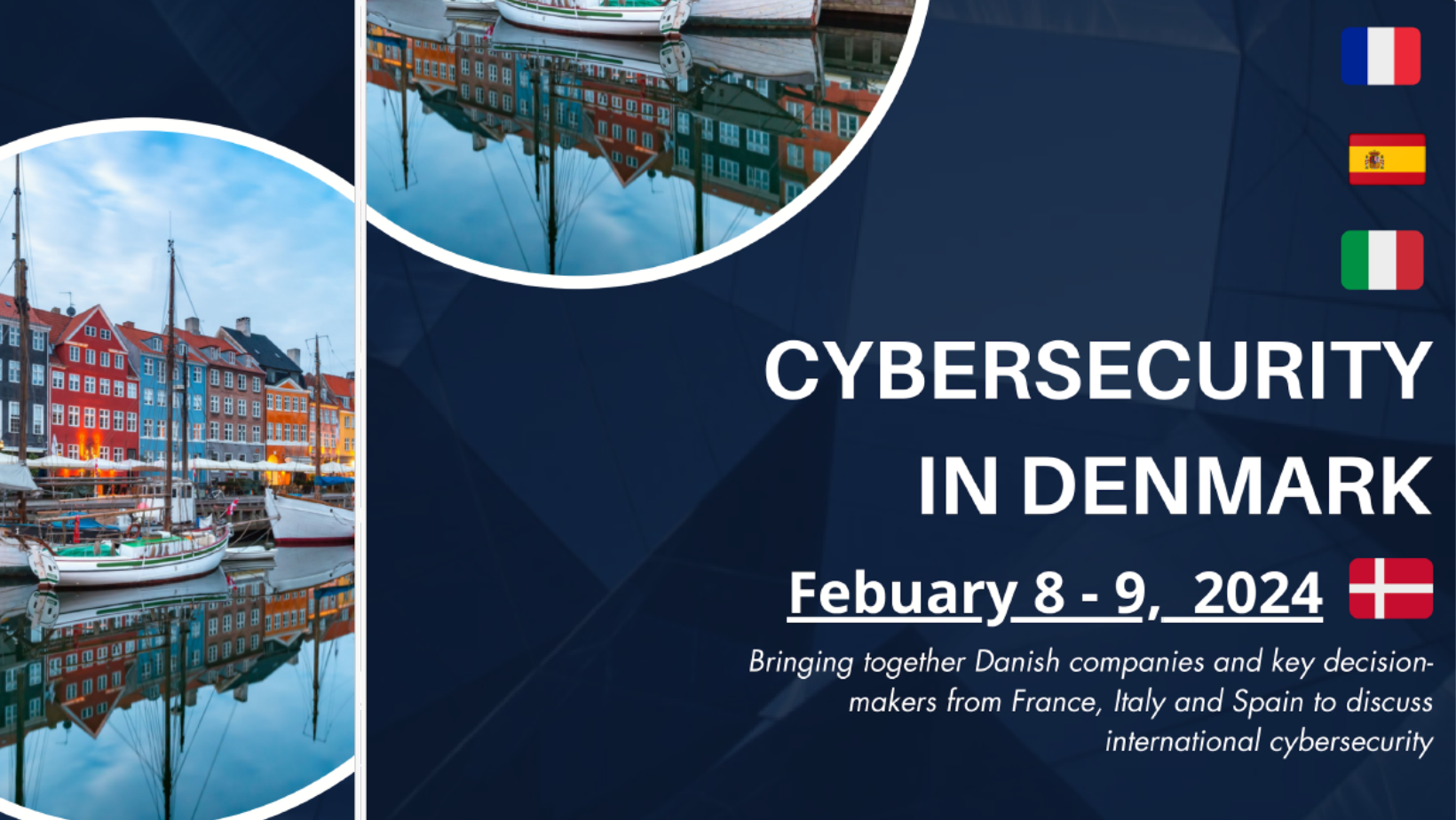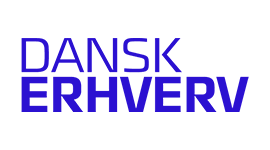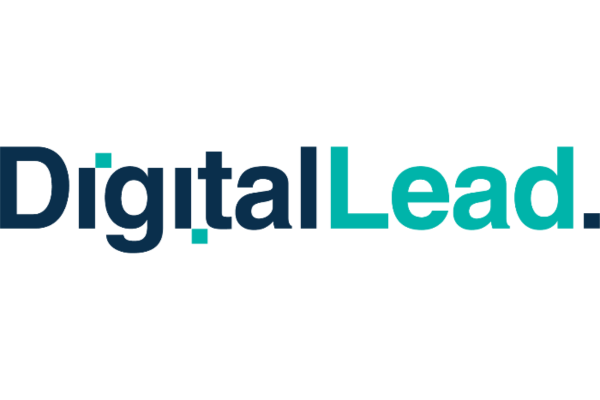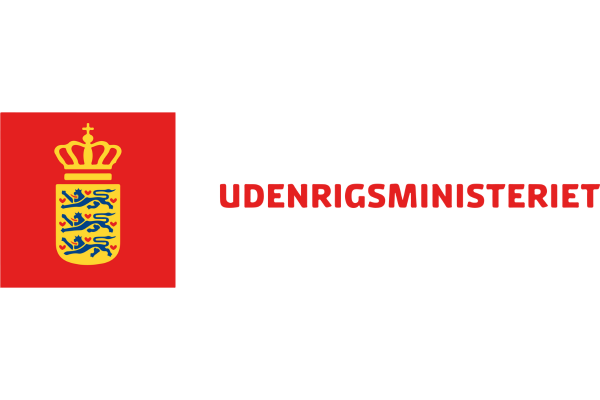Join DigitalLead and the Danish Trade Councils in France, Italy and Spain, as we organise a cybersecurity delegation with the aim of bringing together Danish companies and key decision-makers from South Europe.
Our upcoming cross-country delegation will feature high-level stakeholders from France, Italy, and Spain, offering Danish companies a remarkable opportunity to forge valuable connections and partnerships within the cybersecurity sector.
Mark your calendars for February 8th and 9th, 2024, in Copenhagen, as we invite you to participate in this cybersecurity initiative.
During the event, you will learn more about critical themes, aiming to provide relevant insights, share best practices, strategies and methods for safeguarding sensitive data.
Delegates will have the chance to explore digital identity, cybersecurity management, governance and artificial intelligence (AI). You will also hear about successful case studies in cybersecurity strategies and will have the opportunity to pitch your company's services to carefully selected potential partners from France, Italy, and Spain.
Don't miss this unique opportunity to strengthen your presence in the cybersecurity landscape and expand your network with industry leaders and experts. We look forward to welcoming you to this exclusive event in Copenhagen.
Co-funded by Industriens Fond

PRORGAM: Subject to change
Day 1
09:00 – 09:10 Welcome to the Delegation guests
by Casper Klynge, SVP from The Danish Chamber of CommerceOverview presentation of the Danish Cybersecurity Landscape
by Zaynab Al-Hussaini, Digital Lead, the National Cluster of Digital Technologies
09:10 – 10:00 Keynote: Status of Danish Cybersecurity: threats and trends
by Thomas Flarup, Head of Centre for Cybersecurity, CFCS
10:00 – 11:00 Keynotes: Best practices in Cybersecurity Management and Governance
by Danish Regions, Copenhagen Municipality and Gladsaxe Municipality
11:15 – 12:00 Case studies on successful cybersecurity strategies
by Ministry of Digital Government
12:00 – 13:00 Networking Lunch
13:00 – 13:45 Keynotes: Overview of SWE Region & Procurement procedures
(France, Italy, Spain) (15 min presentation per country)
13:45 – 14:45 Presentation of Danish Cyber-solutions (5 min presentation from each company)
15:00 – 15:45 2-3 Real cases/testimonials from Danish Public Administration as a client
by Digital Lead: Muninn, Retest Security and The Challenge Lab from Århus Municipality
15:45 – 16:45 Speed-dating session: Danish Cyber solutions meet with international delegates
19:30 – 22:00 Networking dinner
Day 2
Panel Debate 1
Threat intelligence sharing: the benefits and challenges of sharing threat intelligence amongst organizations and Governments.
Sharing threat intelligence enhances situational awareness, improves detection and response, reduces costs, and strengthens collaboration. However, it poses risks, requiring protection of sensitive data and intellectual property. Adoption of common standards and consideration of cultural, political, and competitive factors are necessary.
What are the best practices and recommendations given in France, Italy, Spain, and Denmark?
Panel Debate 2
AI & How to protect sensitive citizen data
AI enhances processes, improves services, and refines human decision-making, yet raises concerns about data privacy and security. Exploring advantages and challenges in AI use by public authorities today is crucial. Ensuring transparent, harm-free automated processes and preventing sensitive data leaks or misuse are key priorities.
How do France, Italy, Spain, and Denmark implement best practices to safeguard citizens' data in diverse user spaces, and how might enhanced collaboration yield mutual benefits?
Panel Debate 3
Identity and Access Management (IAM): The importance of IAM in safeguarding network resources
IAM ensures precise access to resources in the face of growing regulatory and organizational pressures. Integrating modern IAM tech with legacy infrastructure, including on-premises and cloud environments, poses challenges. Addressing these challenges aligns with regulatory demands for seamless citizen or customer registration and access.
What are the current best practices in France, Italy, Spain, and Denmark, and how are they implemented? Additionally, what expectations can we have for the future of these practices in these countries?




